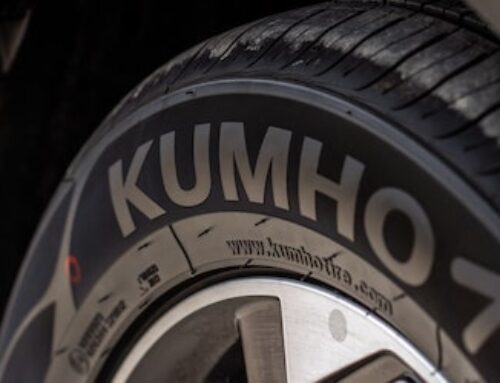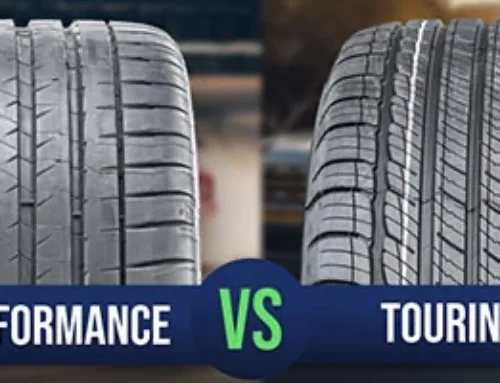Table of Contents
Did you know that electric vehicles have their own special tires? Oh, well, you should. If you put regular car tires on an electric vehicle, you’ll be sacrificing performance, range, battery life, safety, and more! Tires for electric vehicles are made special to handle the unique challenges of electric vehicles (or EVs). In this article, we attempt to go over the major differences between tires for gas-powered cars and tires for EVs.
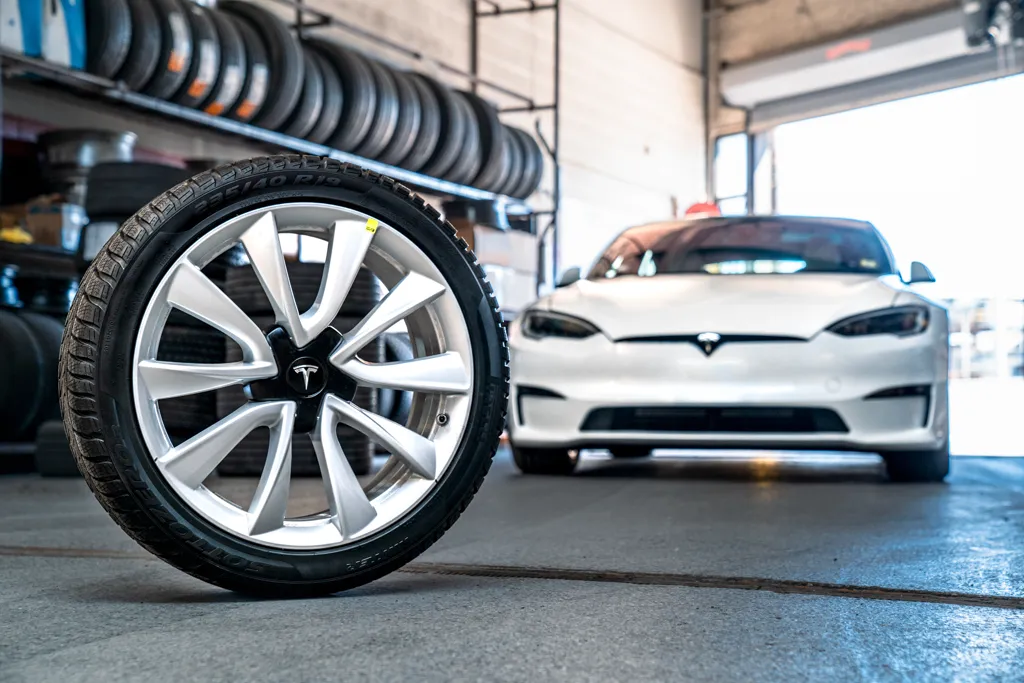
Do EV tires cost more?
The short answer to this is yes. EV tires will be somewhere between $150 and $300 per tire. The price for luxury EV tires can be even higher.
However, if you choose to forgo EV tires and just slap on some regular tires, you’ll end up paying more in other ways. Regular tires will wear out about 20-30% faster on an EV, they’ll also reduce your EV’s overall range and lower performance, braking, handling, etc.
So yes, while it is unfortunate that EV tires cost more, it’s definitely in your best interest to get EV-specific tires for your vehicle.
Why do EVs need special tires?
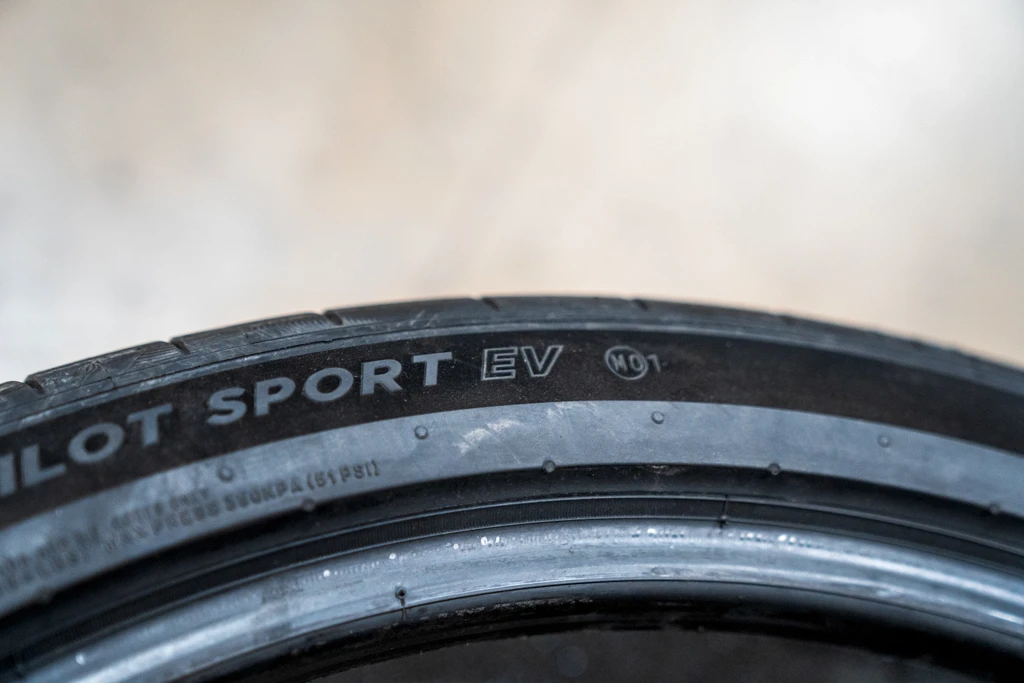
There are several reasons why electric vehicle tires are different. The two biggest reasons are:
1. Weight
Electric vehicles tend to be much heavier than your typical gas-powered car. This is because of the massive battery packs that EVs need to store energy. While a full tank of gas can weigh up to 100 lbs or more, a standard EV battery weighs about 1,000 lbs. It’s because of this massive battery that EVs are usually about 20-30% heavier than a gas car of a similar size.
This extra weight means that the sidewalls and the carcass need to be stronger to support the heavier load. This is known as the tires Load Index, which is just a fancy way of saying how much weight (or load) the tire can support when inflated. Additionally, this increased weight means that starting and stopping is going to cause more tire wear and ultimately affect tire life.
2. High instant torque
Compared to combustion cars, an electric car applies a high instant torque. This means increased acceleration, which electric vehicles are known for, but it also means increased friction between the tire and the road surface at the start of acceleration.
Increased friction results in increased tire wear. Over time this wears down the tread of regular tires much more quickly.
What makes EV tires special?
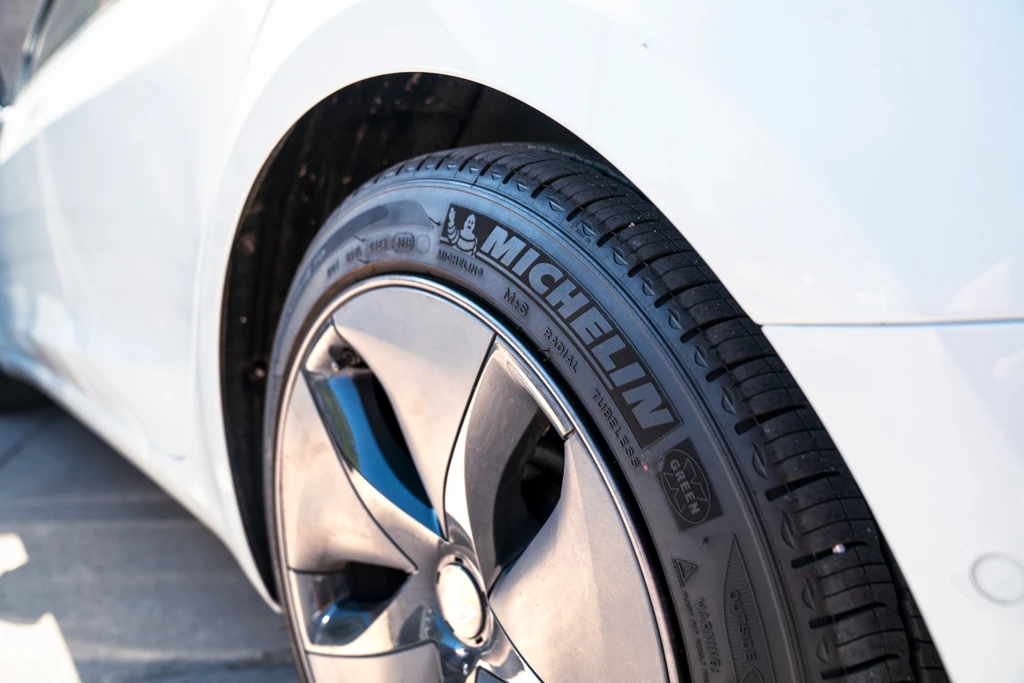
Rubber compound
An EV tire is usually made with special compounds within the rubber that increase its strength and rigidity. This helps decrease the additional wear and tear from the heavier weight of the vehicle and the instant torque.
These specialized rubber compounds also provide optimal grip, which decreases braking distance and increases handling. Braking distance is the amount of distance needed for the car to come to a complete stop once the brakes are engaged. Handling is your vehicle’s ability to execute tight turns and steering maneuvers.
Rolling resistance
Put plainly, this is the amount of effort needed to keep your wheels moving at a constant speed. As a car moves forward, a lot of energy is lost as friction. For gas cars, this might mean just a bit more gas in the tank to make up the difference, but for EVs, it would require a significant increase in the size and weight of the battery, which we already know is pretty huge.
Lower rolling resistance means that less energy is wasted as the car moves along. Low rolling resistance means the car glides more smoothly and with less effort. A low rolling resistance translates to greater fuel efficiency in a gas-powered car and increased driving range for an electric car.
Flatter contact patch
EV-specific tires will usually have a flatter and, thus, wider part of the tire that makes contact with the ground. This greater surface area gives the tire more grip.
Tire configuration
EV tires have larger tread blocks for increased traction.
Tire noise
On average, electric vehicles are extremely quiet when compared to their gas-powered cousins. This is mostly because electric motors are much quieter than internal combustion engines. So while you’re driving in your EV, the tires will seem much louder even though the overall volume of the ride is lower.
This is because the sound of the tires is normally drowned out by engine noise and wind noise in gas cars. To counteract this road noise generated by the tires, an EV tire usually comes equipped with sound absorbers to reduce tire noise.
Do EV tires sacrifice comfort?
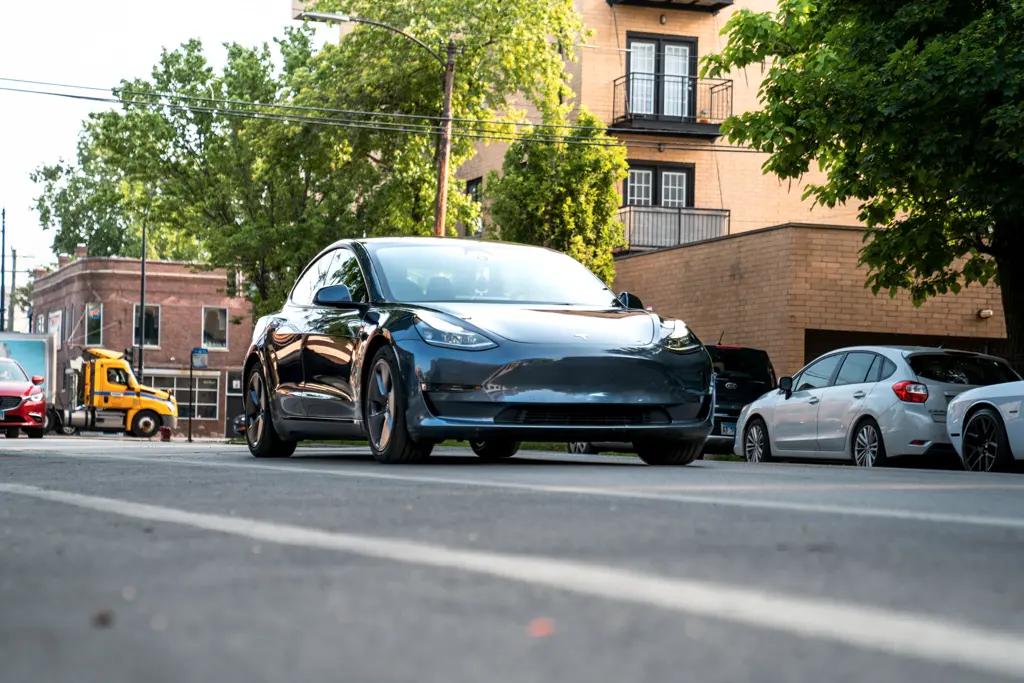
No, not at all! Electric cars have specific needs which are matched perfectly by their specialty tires. For example, a heavy SUV might have stronger struts or shock absorbers, but you will still have a comfortable ride because they are made that way to handle the extra weight of the vehicle and still provide comfort.
However, the opposite is not true: if you put EV-specific tires on a gas-powered car, they will likely feel still and bumpy.
Do EV tires need other forms of regular maintenance?
Yes, you will still need to have regularly scheduled maintenance for your EV to maximize tire performance. Electric cars have many unique components and require less maintenance than cars with gas engines, but EV tires require the same maintenance. This includes things like:
- Get a tire rotation every 6,000 miles or so
- Regularly check the tire pressure with a tire gauge
- Replace tires that are old and worn out or have some kind of damage, such as a bulge
- Get a tire alignment at least once per year
Do larger wheels affect EV driving range?
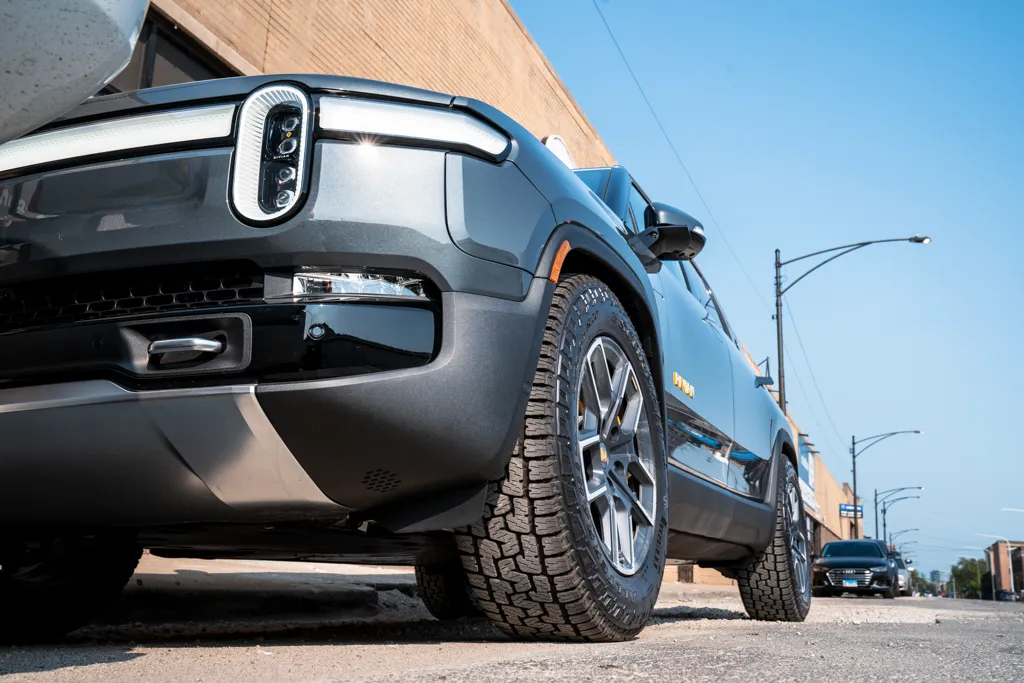
The simple answer to this is yes, but probably not in the way that you think. Larger wheels will actually decrease the driving range of your electric vehicle.
This mostly comes down to aerodynamics; the larger wheel pushes more air, which creates more drag. The battery then needs to pump out more power to keep this wheel spinning at the same speed then it would for a smaller wheel.
GoTire’s recommended tires for electric vehicles
- Michelin e.Primacy
- Pirelli P Zero Elect
- Michelin Pilot Sport EV
- Bridgestone Turanza Eco
- Continental EcoContact 6
- Hankook Ventus S1 eco 3 ev
- Hankook Kinergy Eco EV
- Goodyear Electric Drive GT.
Don’t let the best tire deals & tips roll by!
Sign up for our newsletter
Frequently Asked Questions
Do EV tires wear out faster?
Yes, on average EV specific tires will last about 30,000 to 40,000 miles, slightly less than standard tires. But keep in mind that standard, non-EV tires will wear out even faster than that on an electric vehicle.
Is it legal to use regular tires for electric vehicles?
Yes, it is perfectly legal to do so, but you will be sacrificing performance, tire life, and safety.
Do EV tires need air?
Yes, just like regular tires, EV tires need to be pumped up to the correct air pressure to function properly. Under-inflated or over-inflated tires will reduce performance and make your tires wear out faster.


